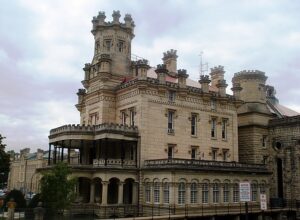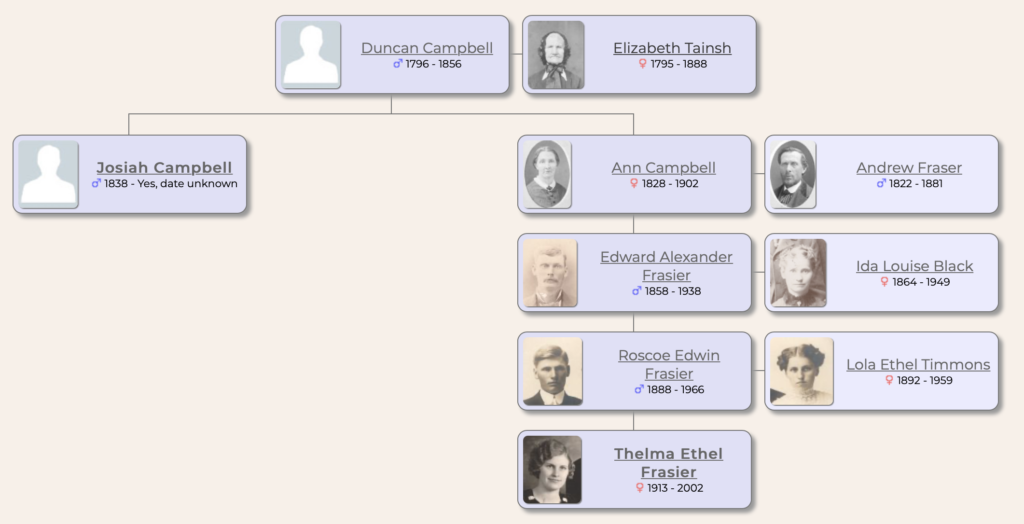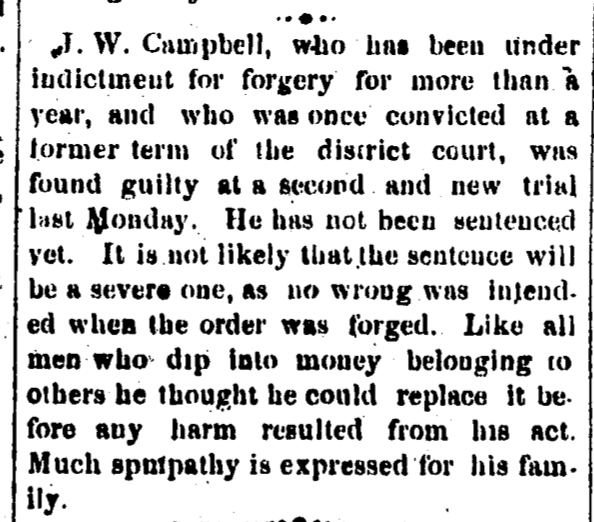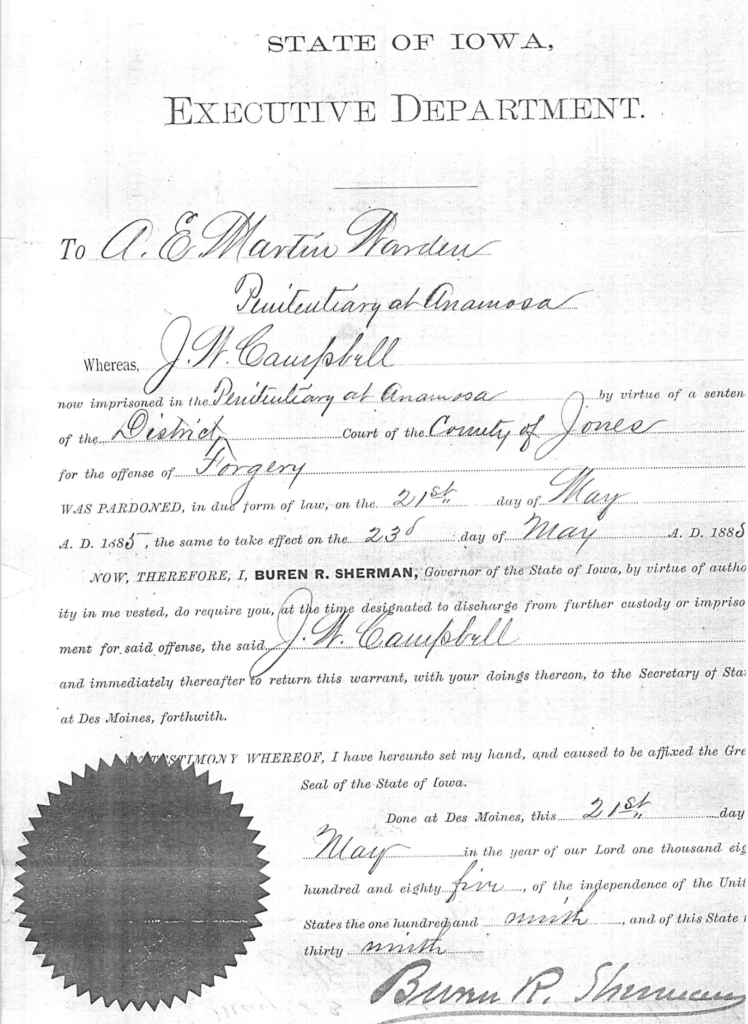This week’s theme is “Crime and Punishment.” Our ancestors were human, so it tends to reason that someone in the family tree found themselves on the wrong side of the law. The up-side for us is that they often created more records than the law-abiding ancestors!
I am so glad this prompt came along in the 52 weeks series of posts! I realized that I’ve had a pretty good story waiting in the wings that never made it onto the blog.

There’s much more work to be done on this – but the long and short of it is that my 4x-great-uncle Josiah Campbell was sent to the Iowa State Penitentiary for forgery! This chart shows how Josiah fits into the family. He was the youngest brother of Ann Campbell, who was my 3x-great-grandmother.
Here’s a quick timeline:
- June 1883 – Josiah Campbell arrested for forgery
- December 1883 – First trial; found guilty
- Attorney made a motion for a new trial
- December 1884 – Second trial; found guilty; six-month sentence
- February 12, 1885 (or thereabouts) – Began serving sentence
- May 25, 1885 – Received a pardon from the governor (!)
He only served half his sentence before being pardoned. Luckily (for us), at some point during that very short window of time, the State of Iowa conducted the State Census of 1885 and he is listed as an inmate at the Anamosa Penitentiary. Otherwise, I might not have found out about this!
I’ve been so far unable to determine exactly who’s name he forged onto what document. His occupation was salesman, so I wonder if he forged a customer order. A newspaper account1 makes it sound almost accidental:
J.W. Campbell, who has been under indictment for forgery for more than a year, and who was once convicted at a former term of the district court, was found guilty at a second and new trial last Monday. He has not been sentenced yet. It is not likely that the sentence will be a severe one, as no wrong was intended when the order was forged. Like all men who dip into money belonging to others he thought he could replace it before any harm resulted from his act. Much sympathy is expressed for his family.
I don’t know what it took to get a pardon. Did you have to have connections? Or just an aggressive lawyer? In any event, if you’ve ever wondered what a governor’s pardon looks like, here’s Josiah’s.
Though the newspaper account is sympathetic, Josiah was apparently the black sheep of the family even before he got into this trouble. Here’s an excerpt from an 1876 letter that William McKay sent to his first cousin, my great-great-grandfather, Edward Frasier. In this letter, “Aunt Mag” refers ti Margaret Campbell Bowley, Josiah’s older sister; “Uncle” is Margaret’s husband, Finn Bowley; and “Grandma” is Josiah’s and Margaret’s mother Elizabeth Tainsh Campbell.
…he [Josiah] came over and Grandma was watching for him and run out to meet him and when he came in Aunt Mag was in the other room but she knew she was in there and Grandma called her to come out and see who was there but she was in no hurry for a little while and then she went out and he put out his hand to shake hands and she barely shook hands with him and then went out into the wood shed where Uncle was and did not go back nor Uncle either but Grandma went down to the gate with him and talked half an hour with him. They feel awful vexed with her for the way she has acted after all he has done and Grandma was made to think they did not treat him as if nothing had happened.
So ten years earlier, Josiah had done something bad that had the family all angry at him. Margaret could barely bring herself to shake his hand, but their mother (Elizabeth Tainsh Campbell) was apparently forgiving.
I wonder what THAT was all about?
Josiah was married twice and had four daughters with his second wife. Much more digging to be done on this one.
1Monticello Express, December 25, 1884




Very interesting!
Fascinating
Interesting story…